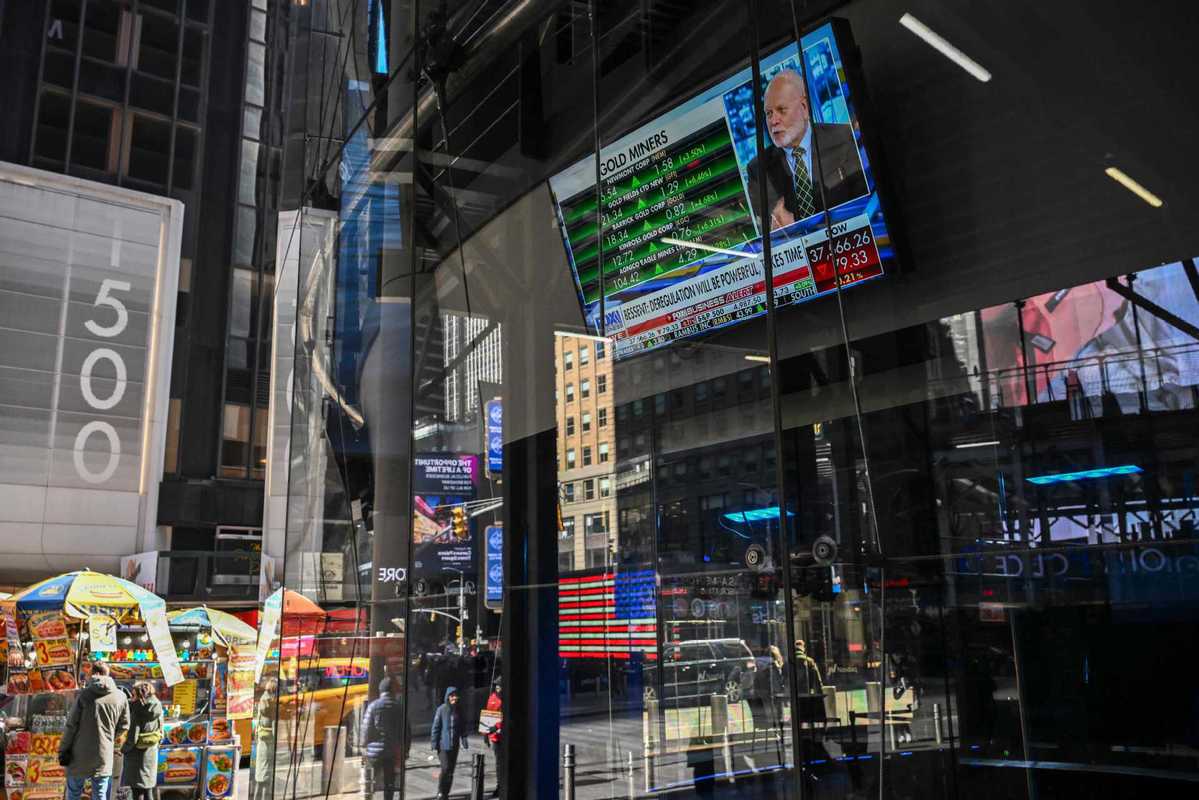Experts warn heavy duties risk igniting multifront trade war, stoke uncertainty

A panel of experts has warned that US President Donald Trump's "Liberation Day" tariffs could ignite a multifront trade war, threatening the US economy, its technological dominance and its global trade relations.
"We're well into the early innings of a multifront trade war," Navin Girishankar, president of the Economic Security and Technology Department at the Center for Strategic and International Studies, or CSIS, said at a briefing on Monday. "The Trump administration has been transparent about its desire to use tariffs … but incoherent about the actual goals."
The briefing followed a CSIS panel assessing the tariffs announced by Trump on April 2, which consist of a 10 percent baseline on all imports and steeper rates for specific nations. Trump said the aim is to reindustrialize the United States, generate revenue to cut the federal deficit and balance trade with partners.
READ MORE: Many people in US puzzled by self-inflicted wounds to economy
The panel, however, expressed skepticism about the policy's effectiveness and highlighted its potential downsides.
Philip Luck, director of the CSIS Economics Program, said the levies could raise up to $500 billion annually but will lead to serious consequences.
"This will be the largest tax increase in modern American history," he said, adding that lower-income US citizens would bear the brunt of higher prices. He mentioned early Atlanta Fed projections showing negative GDP growth for the first quarter with the new tariffs. "There's a real risk of recession," he warned.
Luck also questioned Washington's claim that tariffs would revitalize US manufacturing. "The US is a manufacturing superpower. We're the second-largest manufacturer in the world," he said, noting that output is near record highs despite declining employment.
Girishankar said that the tariffs' revenue potential hinges on flawed assumptions about US leverage. "The core issue here is leverage is relative, not absolute," he said, adding that while smaller nations like Vietnam might comply, larger ones like China are unlikely to bend, raising doubts about the policy's fiscal benefits.
Luck said that prioritizing low-skill manufacturing over high-value tech sectors could cost the US its innovation advantage. "We risk losing ground in areas like artificial intelligence and quantum computing," he said, suggesting a focus on maintaining technological primacy rather than chasing outdated industrial goals.
Ripple effects
The panel also addressed the tariffs' ripple effects on global trade. Girishankar said China has taken countermeasures, while Canada and the European Union are preparing responses.
Adding to the tension, the US has announced an additional 50 percent tariff on Chinese goods, escalating the trade conflict.
Bill Reinsch, a senior adviser at CSIS, described the global reaction as a mix of "denial, anger, bargaining, depression and acceptance". He said more than 50 countries have signaled interest in negotiating with the US, but Washington's tough stance could hinder progress.
Consumers should brace for price hikes, as the 10 percent baseline is likely to hit retail costs, while tariffs also have strained ties with allies, the speakers said.
ALSO READ: Trump pauses many of his tariffs, US stocks surge
Reinsch also noted legal concerns, pointing to lawsuits challenging the tariffs under the International Emergency Economic Powers Act. "The essential arguments are that it violates the major questions doctrine," he said, referring to the need for clear congressional approval for major policies. He expressed doubt over whether the courts would block the tariffs and anticipated protracted legal battles.
"We're going to watch the movie play out pretty much like it played out in the first term," Reinsch said, predicting a cycle of retaliation, talks and small deals, although the global trade landscape has evolved since 2018, with nations like China strengthening their resilience.
Girishankar said the Trump administration lacks a coherent strategy and that this new round of tariffs would cause uncertainty. He added, "Absent of clarity on what the desired end state would be, more and more Americans are asking the question, is this short-term pain for long-term pain?"
yifanxu@chinadailyusa.com


